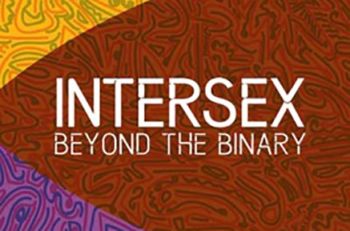
Los Angeles, CA, 314 Royce Hall, UCLA
Recent controversies about the medical management of intersex individuals challenge the common idea that intersex should be considered first from the biomedical point of view, and second with an eye on ethical and socio-political issues. What does ‘caring’ mean when dealing with intersex as an issue that is at the same time biomedical, ethical, and political? What kind of transformation does the acknowledgment of intersex individuals entail for our society and democracy? This symposium brings together biologists, philosophers, and social scientists in order to rethink both the sexed and gendered structure of our societies as well as the status given to intersex individuals.
SPEAKERS:
Ellen Feder – American University
Eric Vilain – University of California, Los Angeles
Georgiann Davis, University of Las Vegas
Vernon Rosario – University of California, Los Angeles
Moderated by Anne Le Goff and Vanessa Nurock – EPIDAPO
Presented by EPIDAPO, CNRS and University of California, Los Angeles , with the support of the CNRS grant “GDRI Forms of Life.” Co-sponsored by the UCLA Institute for Society and Genetics and the Office for Science and Technology of the Embassy of France in the United States.
Introduction by Anne Le Goff
Introduction by Vanessa Nurock
Introduction by Estelle Ferrarese
Ellen Feder – American University: Curiosity, Ethics, and the Medical Management of Intersex Anatomies
Feder considers the role that curiosity plays in the treatment of children and young adults with atypical sex anatomies. While negative or objectifying curiosity is harmful, a positive form of curiosity may open to the experience of those subjected to the medicalization of their bodies.
Feder is the William Fraser McDowell Professor of Philosophy and Social Policy at the American University in Washington DC.
Eric Vilain – University of California, Los Angeles: Disorders/Differences of Sex Development (DSD): A World of Uncertainties
Vilain presents and analyses uncertainties in the medical care for children and young people with DSD. They result from a fragmented research agenda and dissent among the main stakeholders, and focus in particular on the very name of “DSD,” gender assignment, and a changing legal context.
Vilain is the A. James Clark Distinguished Professor of Molecular Genetics and Director of the Center for Genetic Medicine Research, Children's Research Institute, Children's National Medical Center, and Professor and Chair of the Department of Genomics and Precision Medicine at George Washington University.
Georgiann Davis - University of Las Vegas: Contesting Intersex
Davis shows how the change in nomenclature to “DSD,” instead of acknowledging the voice of advocates opposed to medicalization, has allowed an increased medicalization of people with intersex traits. The developed this view in detail in her recent book (New York University Press, 2015).
Davis is Assistant Professor of Sociology at the University of Nevada, Las Vegas and the current Board President of interACT: Advocates for Intersex Youth.
Vernon Rosario – University of California, Los Angeles: The Historical and Cultural Imbrication of Sex, Gender, and Sexuality
Rosario compares how sex, gender, and sexuality were imbricated in Euro-American medical history (specifically the 19th c.) and in other cultures (in particular in South Asia and the Americas). He also shows how intersex was critical to conceptualizing non-normative sex/gender/sexualities.
Rosario is Associate Clinical Professor, Dept. of Psychiatry, David Geffen School of Medicine at the University of California, Los Angeles.
Q&A (all speakers)